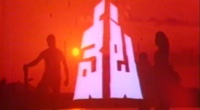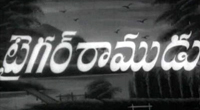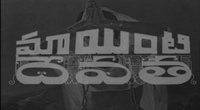Reds is a 1981 American epic historical drama film co-written, produced, and directed by Warren Beatty. The picture centers on the life and career of John Reed, the journalist and writer who chronicled the Russian Revolution in his book Ten Days That Shook the World. Beatty stars in the lead role alongside Diane Keaton as Louise Bryant and Jack Nicholson as Eugene O'Neill.
| Reds | |
|---|---|
Theatrical release poster | |
| Directed by | Warren Beatty |
| Produced by | Warren Beatty |
| Screenplay by |
|
| Starring |
|
| Music by |
|
| Cinematography | Vittorio Storaro |
| Edited by |
|
Production company |
|
| Distributed by | Paramount Pictures |
Release date |
|
Running time | 195 minutes |
| Country | United States |
| Language |
|
| Budget | $32 million |
| Box office | $40.4 million |
The supporting cast includes Edward Herrmann, Jerzy Kosinski, Paul Sorvino, Maureen Stapleton, Gene Hackman, Ramon Bieri, Nicolas Coster, and M. Emmet Walsh. The film also features, as "witnesses," interviews with the 98-year-old radical educator and peace activist Scott Nearing, author Dorothy Frooks, reporter and author George Seldes, civil liberties advocate Roger Baldwin, and the American writer Henry Miller, among others.
Beatty was awarded the Academy Award for Best Director and the film was nominated for Best Picture, but lost to Chariots of Fire. Beatty, Keaton, Nicholson, and Stapleton were nominated for Best Actor, Best Actress, Best Supporting Actor and Best Supporting Actress, respectively. Stapleton was the only one of the four to win. Beatty was also nominated, along with co-writer Trevor Griffiths, for Academy Award for Best Original Screenplay, but lost to Chariots of Fire. Beatty became the third person to be nominated for Academy Awards in the categories Best Actor, Director, and Original Screenplay for a film nominated for Best Picture.
In June 2008, the American Film Institute revealed "AFI's 10 Top 10"–the best ten films in ten "classic" American film genres–after polling over 1,500 people from the film community. Reds came in ninth in the epic genre.
Screenplay
In 1915, married socialite Louise Bryant encounters the radical journalist John Reed for the first time at a lecture in Portland, Oregon, and is intrigued with his idealism. After meeting him for an interview on international politics that lasts an entire night, she realizes that writing has been her only escape from her frustrated high-society existence. Inspired to leave her husband, Bryant joins Reed in Greenwich Village, New York City, and becomes acquainted with the local community of activists and artists, including anarchist and author Emma Goldman and the playwright Eugene O'Neill. Later, they move to Provincetown, Massachusetts, to concentrate on their writing, becoming involved in the local theatre scene. Through her writing, Bryant becomes a feminist and radical in her own right. Reed becomes involved in labor strikes with the "Reds" of the Communist Labor Party of America. Obsessed with changing the world, he grows restless and heads for St. Louis to cover the 1916 Democratic Convention.
During Reed's absence, Bryant falls into a complicated affair with O'Neill. Upon his return, Reed discovers the affair and realizes he still loves Bryant. The two marry secretly and make a home together in Croton-on-Hudson, north of New York City, but still have conflicting desires. When Reed admits his own infidelities, Bryant takes a ship to Europe to work as a war correspondent. After a flare-up of a kidney disorder, Reed is warned to avoid excessive travel or stress, but he decides to take the same path. Reunited as professionals, the two find their passion rekindled as they are swept up in the fall of Russia's Czarist regime and the events of the 1917 Revolution.
The second part of the film takes place shortly after the publication of Ten Days that Shook the World. Inspired by the idealism of the Revolution, Reed attempts to bring the spirit of Communism to the United States, because he is disillusioned with the policies imposed upon Communist Russia by Grigory Zinoviev and the Bolsheviks. While attempting to leave Europe, he is briefly imprisoned and interrogated in Finland. He returns to Russia and is reunited with Bryant at the railway station in Moscow. By this point, Reed is growing progressively weaker as a result of his kidney disorder. Bryant helps nurse the ailing Reed, who eventually dies.
- Warren Beatty as John Silas "Jack" Reed
- Diane Keaton as Louise Bryant
- Edward Herrmann as Max Eastman
- Jerzy Kosinski as Grigory Zinoviev
- Jack Nicholson as Eugene O'Neill
- Paul Sorvino as Louis C. Fraina
- Maureen Stapleton as Emma Goldman
- Nicolas Coster as Paul Trullinger
- William Daniels as Julius Gerber
- M. Emmet Walsh as Liberal Club Speaker
- Ian Wolfe as Mr. Partlow
- Bessie Love as Mrs. Partlow
- Max Wright as Floyd Dell
- George Plimpton as Horace Whigham
- Harry Ditson as Maurice Becker
- Leigh Curran as Ida Rauh
- Kathryn Grody as Crystal Eastman
- Dolph Sweet as Big Bill Haywood
- Gene Hackman as Pete Van Wherry
- Nancy Duiguid as Jane Heap
- Dave King as Allan L. Benson
- Roger Sloman as Vladimir Lenin
- Stuart Richman as Leon Trotsky
- Oleg Kerensky as Alexander Kerensky
- John J. Hooker as Senator Overman
- Jan Triska as Karl Radek
Development
Beatty came across the story of John Reed in the mid-1960s and executive producer and film editor Dede Allen remembers Beatty's mentioning making a film about Reed's life as early as 1966. Originally titled Comrades, the first script was written by Beatty in 1969, but the process stalled. In 1976, Beatty found a suitable collaborator in Trevor Griffiths who began work but was delayed when his wife died in a plane crash. The preliminary draft of the script was finished in 1978. Beatty still had problems with it and he and Griffiths spent four and a half months fixing it. Beatty also collaborated with his friends Robert Towne, Peter Feibleman and Elaine May to continue polishing the script after shooting had begun.
Financing
Beatty achieved tremendous success with 1978's Heaven Can Wait, which he produced, starred in, co-wrote and co-directed for Paramount Pictures. The success gave Beatty the clout to seeking funding for his long nurtured Reds project, which was nonetheless difficult to secure because of the controversial Communist subject matter and high price tag. Beatty succeeded in interesting both Warner Bros. and Paramount, before the head of Gulf+Western (Paramount's parent company), Charles Bluhdorn, agreed to finance the project. Bluhdorn soon had second thoughts, and attempted to dissuade Beatty with the promise of underwriting a $25 million alternative to Reds of Beatty's choice, but Beatty remained committed.
Casting
Beatty originally had no intention of acting in the film or even directing it, because he had learned on various projects such as Bonnie and Clyde and Heaven Can Wait that producing a film alone is a difficult task. He briefly considered John Lithgow for the part of John Reed because the two looked similar in appearance. Eventually, however, Beatty decided to act in the film and direct it himself. Nicholson was cast as Eugene O'Neill over James Taylor and Sam Shepard.
The Witnesses
To gain perspective on the lives of Reed and Bryant, Beatty filmed interviews with a group of men and women, referred to only as "The Witnesses" as early as 1971. As well as being listed in the opening credits, American Film identified the witnesses in its March 1982 issue.
In a capsule review for The New York Times, film critic Vincent Canby refers to them as "more than two dozen very, very old people, billed only as The Witnesses, whom Mr. Beatty interviewed about the Reeds and their long-gone times." He went on to say, "More than anything else in Reds, these interviews give the film its poignant point of view and separate it from all other romantic adventure films ever made." "The most evocative aspect of the presentation is a documentary enhancement – interviews with a number of venerable 'witnesses,' whose recollections of the period help to set the scene, bridge transitions and preserve a touching human perspective," wrote Gary Arnold of The Washington Post.
- Jacob Bailin, labor organizer
- Roger Nash Baldwin, founder, American Civil Liberties Union
- John Ballato, early socialist
- Harry Carlisle, writer, teacher
- Kenneth Chamberlain, political cartoonist for the Masses
- Andrew Dasburg, painter
- Tess Davis, cousin of Louise Bryant's first husband
- Will Durant, historian
- Blanche Hays Fagen, member of the Provincetown Players
- Hamilton Fish, congressman, Harvard classmate of John Reed
- Dorothy Frooks, recruiting girl, World War I
- Hugo Gellert, artist for the Masses
- Emmanuel Herbert, student in Petrograd, 1917–18
- George Jessel, entertainer
- Oleg Kerensky, son of Alexander Kerensky
- Isaac Don Levine, journalist, translator for Reed
- Arthur Mayer, film historian, Harvard classmate of Reed, also film distributor
- Henry Miller, novelist
- Adele Nathan, member of the Provincetown Players
- Scott Nearing, sociologist, pacifist
- Dora Russell, delegate to Comintern
- Adela Rogers St. Johns, journalist
- George Seldes, U.S. journalist in Moscow
- Art Shields, political activist
- Jessica Smith, political activist
- Arne Swabeck, member, Communist Labor Party
- Bernadine Szold-Fritz, journalist
- Galina von Meck, witness to Russian Revolution
- Heaton Vorse, son of a Provincetown playwright
- Will Weinstone, organizer, U.S. Communist Party
- Rebecca West, writer, novelist
- Lucita Williams, wife of a Lenin biographer
Filming
When principal photography began in August 1979 the original intention was for a 15- to 16-week shoot, but it ultimately took one year. Filming took place in five different countries and at various points the crew had to wait for snow to fall in Helsinki (and other parts of Finland), which stood in for the Soviet Union, and for rain to stop in Spain. Actress Maureen Stapleton was due to begin shooting her scenes in London in November 1979, but refused to take a plane because of a fear of flying. Because it was the wrong season for ocean liner travel, the production had to arrange for Stapleton to travel on a tramp steamer, which broke down in the North Atlantic and had to be towed to Amsterdam. This caused another unwelcome delay. Beatty would also not stop the camera between takes, letting it roll continuously, and insisted on a large number of takes. Paul Sorvino said he did as many as 70 takes for one scene; Stapleton had to do 80 takes of one scene, which caused her to say to Beatty, "Are you out of your fucking mind?"
Beatty and Keaton's romantic relationship also began to deteriorate during filming. Peter Biskind wrote about the making of Reds, "Beatty's relationship with Keaton barely survived the shoot. It is always a dicey proposition when an actress works with a star or director—both, in this case—with whom she has an offscreen relationship. Keaton appeared in more scenes than any other actor save Beatty, and many of them were difficult ones, where she had to assay a wide range of feelings, from romantic passion to anger, and deliver several lengthy, complex, emotional speeches." George Plimpton once observed, "Diane almost got broken. I thought was trying to break her into what Louise Bryant had been like with John Reed." Executive producer Simon Relph adds, "It must have been a strain on their relationship because he was completely obsessive, relentless."
Post-production
The editing process began in early 1980, with as many as 65 people working on editing down and going over approximately 2.5 million feet of film. Post-production ended in November 1981, more than two years after the start of filming. Paramount stated that the final cost of the film was $32 million, which would be the rough equivalent of around $80 million today.
Music
The film introduced the song "Goodbye for Now", written by Stephen Sondheim. The song was later recorded by Barbra Streisand for The Movie Album (2003).
- Bollywood movies
- Latest Bollywood movies
- Download all bengali movies
- Download all bhojpuri movies
- Download all english movies
- Download all gujarati movies
- Download all hindi movies
- Download all kannada movies
- Download all malayalam movies
- Download all marathi movies
- Download all oriya movies
- Download all punjabi movies
- Download all tamil movies
- Download all telugu movies
- Bollywood action movies
- Bollywood adventure movies
- Bollywood animation movies
- Bollywood classical movies
- Bollywood comedy movies
- Bollywood crime movies
- Bollywood devotional movies
- Bollywood documentary movies
- Bollywood drama movies
- Bollywood family movies
- Bollywood fantasy movies
- Bollywood historical movies
- Bollywood history movies
- Bollywood horror movies
- Bollywood musical movies
- Bollywood mystery movies
- Bollywood mythological movies
- Bollywood patriotic movies
- Bollywood romance movies
- Bollywood romantic movies
- Bollywood sci-fi movies
- Bollywood social movies
- Bollywood spiritual movies
- Bollywood sports movies
- Bollywood suspense movies
- Bollywood thriller movies
- Bollywood war movies
- Hot actress list
- Hot gujarati actress list
- Hot tamil actress list
- Hot bhojpuri actress list
- Hot assam actress list
- Hot bihari actress list
- Hot jammu and kashmir actress list
- Hot gujarati actress list
- Hot haryana actress list
- Hot konkani actress list
- Hot marathi actress list
- Hot odia actress list
- Hot punjabi actress list
- Hot rajasthani actress list
- Hot kannada actress list
- Hot malayalam actress list
- Hot telugu actress list
- Hot tulu actress list
- Hot Actress list from Indian city
- Hot actress list from ahmedabad
- Hot actress list from alappuzha
- Hot actress list from bangalore
- Hot actress list from bangalore
- Hot actress list from bhopal
- Hot actress list from chandigarh
- Hot actress list from chennai
- Hot actress list from guwahati
- Hot actress list from hyderabad, india
- Hot actress list from indore
- Hot actress list from jaipur
- Hot actress list from kannur
- Hot actress list from kochi
- Hot actress list from kolkata
- Hot actress list from kollam
- Hot actress list from kottayam
- Hot actress list from kozhikode
- Hot actress list from lucknow
- Hot actress list from madurai
- Hot actress list from mangalore
- Hot actress list from mumbai
- Hot actress list from mysore
- Hot actress list from new delhi
- Hot actress list from patna
- Hot actress list from pune
- Hot actress list from thiruvananthapuram
- Hot actress list from thrissur
- Hot actress list from tiruchirappalli
- Hot actress list from vijayawada
- Hot actress list from visakhapatnam
- All Bollywood Movies
- Bollywood Celeb
- >Art Director
- >Audiography
- >Background Music
- >Banner
- >Choreographer
- >Cinematographer
- >Costume Designer
- >Dialogue Writer
- >Director
- >Distributor
- >Editor
- >Executive Producer
- >Hair Stylist
- >Lyricist
- >Music Director
- >Photographer
- >Playback Singers
- >Presenter
- >Producer
- >Production Company
- >Production Designer
- >Screenplay
- >Singer
- >Sound
- >Actor
- >Story Writer
- >Studio
- >Video Director
- >Miscellaneous
- >Publicity (pro)
- >Web Creator
- >Production Labs
- >Publicity Design
- >Publicity Stills
- >Writer
- >Miscellaneous Artists
- >Visual Effects
- >Reporter
- >Music Company
- >Shooting Studios
- >Picturised On
- >Line Producer
- >Co Producer
- >Asst Director
- >Casting Director
- >Cinematography
- >Choreography
- >Dialouge
- >Editing
- >Lyrics
- >Music
- >Story
- >Playback Singer Female
- >Playback Singer Male
- >Actor In A Comic Role (male/female)
- >Child Artiste
- >Ensemble Cast
- >Actor Popular Choice (male)
- >Actor Popular Choice (female)
- >Sa Re Ga Ma Pa Song Of The Year
- >Actor In Supporting Role
- >Actress In Supporting Role
- >Actor In Leading Role
- >Art Direction
- >Actress In Leading Role
- >Sound Recording
- >Costume Design
- >Special Effects
- >Action
- >Actor In A Negative Role
- >Lifetime Achievement Award
- >Cinematic Exellence (director)
- >Cinematic Exellence (male)
- >Cinematic Exellence (female)
- >International Male Icon
- >International Female Icon
- >Actor In A Supporting Role (male)
- >Actor In A Supporting Role (female)
- >Actor In A Comic Role
- >Playback Singer (male)
- >Playback Singer (female)
- >Most Promising Debut (female)
- >Most Promising Debut (male)
- >Most Promising Director
- >Sound Design
- >Lifetime Jodi
- >Marketed Film
- >Jury Award For Best Actor
- >Jury Award For Best Actress
- >Jury Award For Best Film
- >Jury Award For Best Director
- >Playback Singer(male)
- >Lifetime Acheivement Award (male)
- >Excellence Award
- >Jodi Award
- >Performer Of The Year
- >Presented By
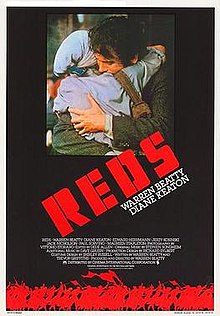 Story of movie Reds Film :
Story of movie Reds Film : 
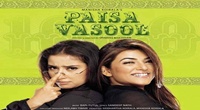
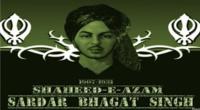

.jpg)
.jpg)
.jpg)
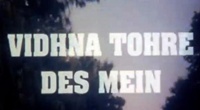
.jpg)
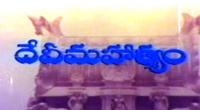

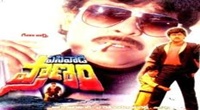
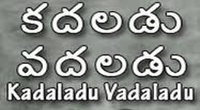
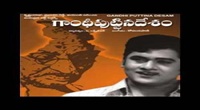
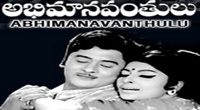

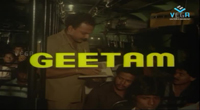

.jpg)
